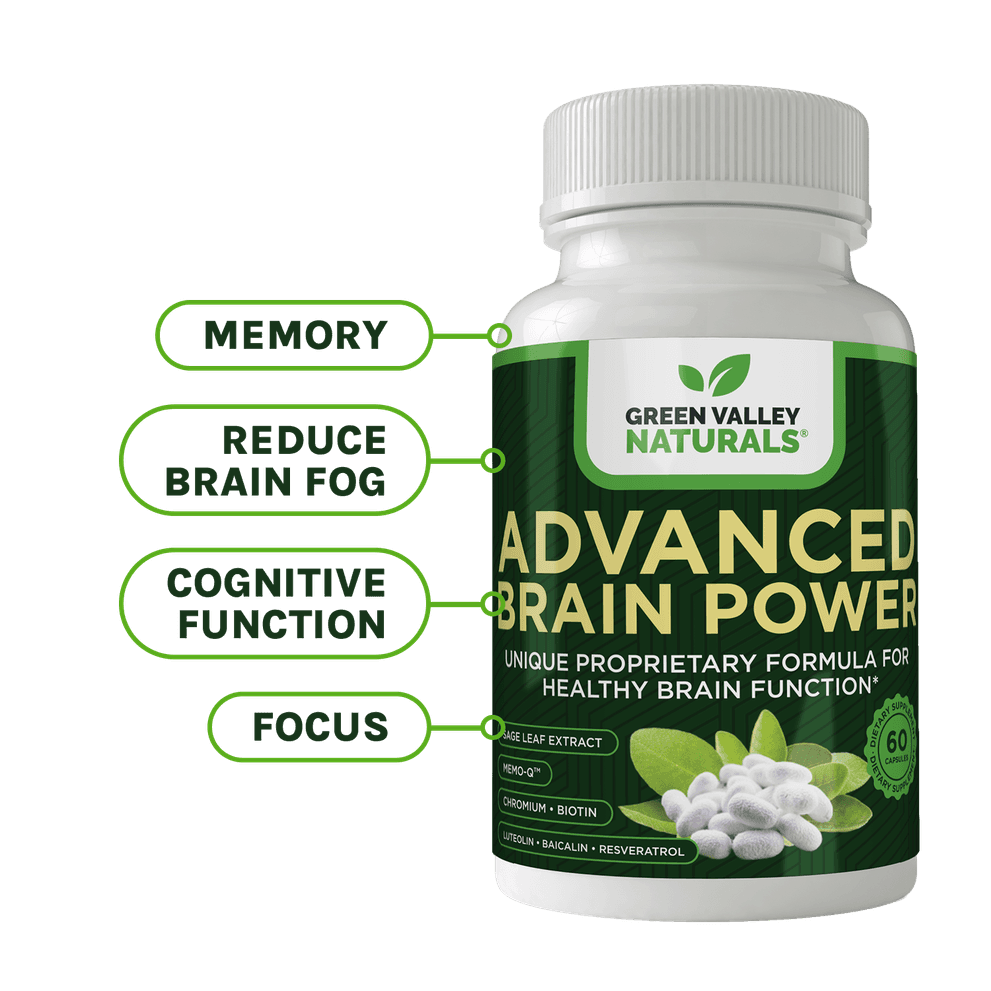
When most people think of silk protein, they envision luxurious skincare products or silky-smooth hair treatments. These silk-based products are often called an "elixir of youth" for their ability to nourish and protect skin and hair. Now, there's a fascinating new frontier in silk protein research that's capturing the attention of neuroscientists and health enthusiasts alike.
Key Takeaways
- Memo-Q is a standardized silk-peptide complex (from cocoon fibroin) formulated for cognitive support—not mulberry extract.
- Human studies report memory and attention benefits, often within 3 weeks.
- Proposed actions include cholinergic support and cellular neuroprotection, offering a non-stimulant option for brain health.
What Are Silk Proteins?
Amino acids are the building blocks that give silk proteins their remarkable properties, making them a sought-after ingredient in both skincare and hair care products. Silk is composed of two primary proteins: fibroin and sericin.
Fibroin, the structural protein, is especially rich in amino acids like glycine and alanine. This unique composition provides silk fibers with their renowned strength, flexibility, and smooth texture, which translates into improved skin elasticity and resilience when used in cosmetic applications.
Sericin, often referred to as the sticky protein, is abundant in hydroxy amino acids. These amino acids enable sericin to form a strong, protective barrier on the surface of the skin and hair, helping to shield them from external factors such as pollution, UV radiation, and environmental stressors. This protective barrier not only defends against damage but also locks in moisture, supporting the skin's barrier function and promoting excellent moisture preservation characteristics.
Hydrolyzed silk protein, which is silk protein broken down into smaller peptide chains, is easily absorbed by both skin and hair. This enhanced absorption allows the amino acids to penetrate deeply, delivering hydration, boosting skin elasticity, and reinforcing the hair's structure from within. The combination of fibroin and sericin, with their rich amino acid profiles, makes silk proteins an ideal ingredient for hair care and skincare products. But it's only the beginning.
Beauty and Brains: The Comprehensive Benefits of Silk Protein
The latest research shows that the amino acid profile of silk proteins includes important peptides that can cross the blood-brain barrier. According to neuroscientists, they can do a lot of good for aging brains.
The research on silk protein for cognitive function is both compelling and well-documented. Recent studies have demonstrated that silk fibroin enzyme hydrolysates exhibit beneficial cognitive effects with respect to memory and learning, attention, mental focus, accuracy, memory recall, and overall concentration across diverse populations.
Beyond attention and memory, silk protein peptides for brain performance and neuroprotection may support membrane integrity, BDNF signaling, and healthy cerebral blood flow. If "cloudy" is your baseline, silk protein combined with sleep, stress, and nutrition fixes could help clear mental fog and enhance cognitive clarity.
Human Clinical Evidence: Sharper Memories
The most impressive evidence comes from rigorous human clinical trials. In a landmark double-blind, placebo-controlled study involving 76 healthy subjects aged 28-92 years, researchers found dose-dependent improvements in memory after just three weeks of silk protein supplementation. Participants receiving 280-600 mg daily showed statistically significant increases in memory quotient, learning gradient, number of words remembered, and retrieval efficiency.
What makes this research particularly noteworthy is the consistency of results across different age groups. Controlled studies in school-age children have reported faster task performance and better accuracy and attention on neurocognitive tests, while separate trials in adults consistently demonstrate memory improvements with doses of 200-400 mg daily for three weeks.
How Does Silk Protein Help Memory?
Researchers have identified several pathways through which silk protein peptides may support cognitive function:
Neurotransmission Support: Laboratory and translational research suggests that silk peptides may support acetylcholine signaling—a critical neurotransmitter system for memory formation and learning. Studies have shown that silk peptide fractions can restore cognitive function by increasing expression of choline acetyltransferase, the enzyme responsible for acetylcholine production.
Cellular Protection: The peptides demonstrate significant neuroprotective properties, reducing oxidative stress and preventing neuronal cell death (apoptosis). Silk protein peptides may also act as antioxidants, helping to reduce oxidative stress and protect neuronal cells. Research published in 2022 found that silk fibroin hydrolysate significantly attenuated impairment of spatial learning and memory while preventing neuronal damage in animal models.
Brain Activation and Blood Flow: Perhaps most intriguingly, imaging studies using fMRI and SPECT scans have reported greater activation in memory-related brain regions after silk protein intake. This suggests improved neural connectivity and blood flow to areas critical for cognitive processing.
Anti-Inflammatory Effects: Recent research indicates that silk protein peptides can interfere with microglia-mediated neuroinflammation, potentially protecting the brain from chronic inflammatory damage that contributes to cognitive decline.
The research is exciting to say the least. One of the most important advances from the research is Memo-Q silk protein.
What Is Memo-Q Silk Protein?
Memo-Q represents a new generation of silk protein applications, moving beyond beauty into the realm of brain health. This isn't your typical beauty ingredient—it's a scientifically-backed brain health supplement derived from the same silk proteins that have been treasured for centuries, now standardized and studied for its remarkable effects on memory, learning, and mental clarity.
This branded ingredient is a standardized complex of short silk-protein (fibroin) peptides, originally researched and marketed as BF-7 and Cera-Q. The silkworm cocoons used for Memo-Q are sourced from Bombyx mori, the mulberry silkworm, which is renowned for its diet of mulberry leaves and its historical significance in silk production. Unlike traditional silk protein used in cosmetics, Memo-Q consists of bioactive peptides specifically derived from silkworm cocoon fibroin—fibroin is the protein that provides the structural properties of silk—and formulated to support cognitive function.
It's important to understand what Memo-Q is—and isn't. This specialized ingredient contains bioactive peptides derived from silkworm cocoon fibroin, representing the same research lineage behind the well-studied BF-7/Cera-Q formulations. However, Memo-Q is not mulberry extract, which has its own separate body of memory research. Instead, it's a targeted silk-peptide ingredient designed specifically for brain health.
The distinction matters because while silk proteins have traditionally been celebrated for their external benefits—providing moisture retention, supporting skin elasticity, and offering protection against environmental stressors—Memo-Q harnesses these same protective and regenerative properties for internal cognitive support.
How to Use Memo-Q
Clinical studies have established clear dosing guidelines for silk protein cognitive benefits. The effective dose is 200 mg daily.
The timeframe for seeing results is remarkably consistent across studies—most participants experience measurable improvements in memory tests after approximately three weeks of consistent use. This relatively quick onset makes Memo-Q an attractive option for students preparing for exams, professionals facing demanding cognitive challenges, or older adults seeking to maintain mental sharpness.
Who Benefits Most from Memo-Q Silk Protein
The research indicates that Memo-Q is particularly beneficial for:
Students and Professionals: Those seeking better learning efficiency and recall without the jitters associated with stimulants. Studies show improved task performance, accuracy, and attention—exactly what's needed for academic or professional success.
Mid-Life and Older Adults: Individuals aiming to stay sharp and support everyday memory function. Clinical trials demonstrate significant improvements in memory quotient and word recall in adults aged 55 and older.
Anyone Building a Non-Stimulant Brain Health Routine: Unlike caffeine-based cognitive enhancers, Memo-Q provides memory support without stimulation, making it suitable for those sensitive to stimulants or seeking evening cognitive support.
People Dealing With Brain Fog: Foggy thinking can strike at any age and can impact brain health and memory. How long does brain fog last? The right nutrition, lifestyle choices, and supplements like Memo-Q
Stacking and Combinations
While Memo-Q is effective on its own, it's often combined with other non-stimulant cognitive support ingredients. Common combinations include sage extract for additional cholinergic support, resveratrol and transresveratrol for improved blood flow and metabolic support, and DHA omega-3 fatty acids for overall brain health maintenance.
Learn More about the Best Nootropics For Focus
Advanced Brain Power
That's why Green Valley Naturals formulated Advanced Brain Power with Memo-Q (silk fibroin peptides), sage leaf extract, resveratrol, and other key nutrients to target neurotransmission, inflammation, vascular support, and energy use, all key factors behind memory, focus, and mental clarity. The result is practical, stimulant-free cognitive support that you can feel every day.
Using Silk Proteins For Healthier Skin and Hair
Silk proteins have earned their reputation as premium skincare ingredients through their unique ability to deliver both immediate and long-term benefits. These proteins form a protective film that acts as a physical barrier on the skin's surface, locking in moisture while allowing the skin to breathe naturally. Silk proteins also help stabilize and enhance the absorption of active ingredients in skincare formulations, boosting their effectiveness. The molecular structure of silk proteins, particularly fibroin and sericin, enables them to bind water molecules effectively, creating a reservoir of hydration that can last throughout the day. Different forms of silk proteins, such as hydrolyzed silk, are processed to improve skin absorption and provide targeted benefits like elasticity, hydration, and anti-aging effects. This makes them particularly valuable for those with dry, sensitive, or mature skin who need sustained moisture without the heavy, greasy feeling of traditional moisturizers.
Beyond basic hydration, silk proteins offer significant anti-aging properties that have made them a cornerstone of premium skincare formulations. The amino acid composition of silk closely mirrors that of human skin, allowing for superior absorption and compatibility. When applied topically, silk peptides can stimulate the skin's natural collagen production, helping to reduce the appearance of fine lines and improve overall skin texture. Their natural UV-protective properties also provide a degree of defense against environmental damage, though they shouldn't replace dedicated sun protection. Regular use of silk protein-infused products as part of a consistent skincare routine can lead to visibly firmer, more elastic skin with a characteristic smooth, silky texture and a healthy glow that reflects the ingredient's namesake.
You can find them in high-end moisturizers, serums, and luxury face masks.
Hair Care Applications
The hair care industry has embraced silk proteins for their remarkable ability to repair and protect damaged hair at the molecular level. Sericin, a silk protein, is commonly used in hair products to prevent and repair hair damage. Unlike many synthetic conditioning agents that simply coat the hair shaft, silk amino acids are small enough to penetrate into the hair's cortex, where they can help rebuild the protein structure that gives hair its strength and elasticity. In addition, silk proteins support and restore keratin in the hair, strengthening and protecting it from further damage. This makes silk proteins particularly effective for chemically treated, heat-damaged, or naturally fragile hair that needs more than surface-level conditioning. The proteins work by filling in gaps in damaged cuticles and reinforcing weakened areas, resulting in hair that not only looks healthier but actually becomes stronger and more resilient over time.
Silk proteins excel at moisture retention and frizz control, making them invaluable for managing unruly or dry hair types. Found in everything from daily shampoos and conditioners to intensive weekly masks, these proteins create a lightweight, breathable film around each individual hair strand that seals in moisture while repelling humidity-induced frizz. The result is hair that feels silky smooth, looks naturally glossy, and moves with enhanced fluidity and manageability. Many users notice that their hair becomes easier to style and holds styles longer when using silk protein-enriched products regularly, as the proteins help maintain optimal moisture balance and structural integrity.
Integrating Silk into Daily Routine
By making silk proteins a part of your daily routine, you can experience firsthand the hydration, protection, and elasticity that this natural ingredient provides—unlocking the secret to smoother, more youthful skin and hair with every use.
Incorporating silk proteins into your daily beauty regimen requires a strategic approach to maximize their benefits without overwhelming your skin or hair. For skincare, silk proteins work best when layered appropriately—typically in serums applied after cleansing but before heavier moisturizers, or integrated into your primary moisturizer for all-day hydration. Including silk protein-infused products in your daily skincare routine can help enhance skin elasticity, hydration, and repair, especially when used consistently.
The key is consistency rather than quantity; even small amounts of silk proteins can provide significant benefits when used regularly over time. For hair care, the frequency of use depends on your hair's condition and needs—while silk protein shampoos and conditioners can be used daily, intensive treatments should be limited to once or twice weekly to avoid protein overload, which can actually make hair feel stiff or brittle.
DIY enthusiasts can also harness the power of silk proteins through homemade treatments, though it's important to source high-quality hydrolyzed silk powder from reputable suppliers. Simple face masks can be created by mixing silk protein powder with hydrating ingredients like honey or aloe vera, while combining silk protein with mild exfoliants such as yogurt, sugar, or salt can provide gentle exfoliation that nourishes and hydrates the skin.
Hair treatments can combine the protein with natural oils for deep conditioning. However, pre-formulated products often provide more consistent results and better stability, as they're specifically designed to optimize the proteins' effectiveness and shelf life. Whether you choose commercial products or DIY approaches, the key to success with silk proteins lies in understanding that they work gradually to improve skin and hair health from within, rather than providing instant cosmetic fixes.
Safety and Considerations
The safety profile of silk protein for cognitive use appears excellent based on published research. Human trials lasting up to 16 weeks in children and three to four weeks in adults report silk protein as generally well-tolerated, with no significant adverse effects noted.
Recent comprehensive toxicological assessments of silk fibroin in animal studies demonstrate a very high degree of safety, with no toxicological, mutagenic, genotoxic, or allergenic concerns identified. The no-observed adverse effect level (NOAEL) was determined to be greater than the highest doses tested.
However, as with any supplement, it's important to discontinue use if you notice any adverse effects and consult with a healthcare provider, especially if you're pregnant, nursing, taking medications, or considering use in children.
BF-7, the silk-peptide complex behind Memo-Q, holds individual recognition under Korea's Health Functional Foods framework, reflecting substantial dossier-level evidence for cognitive function. While this doesn't constitute a disease claim, it provides additional credibility for the ingredient's evidence base.
Additionally, silk protein has received Generally Recognized as Safe (GRAS) status from the FDA for food applications, supporting its overall safety profile for human consumption.
Even natural supplements can pack a punch. When used wisely and under proper guidance, silk protein can be like a turbo boost for your brain, potentially sharpening your focus, enhancing your memory, and improving your overall cognitive function. The key is to start slow and listen to your body. After all, the goal is to help your brain, not stress it out!
The Future of Silk Protein in Brain Health
The emergence of Memo-Q represents a fascinating convergence of traditional knowledge and modern science. For centuries, silk and silk protein hydrolysates have been consumed in traditional Asian medicine for various health benefits. Now, rigorous clinical research is validating specific applications for cognitive enhancement.
This research is particularly exciting because it demonstrates that the same protective and regenerative properties that make silk proteins valuable for external beauty applications can be harnessed for internal cognitive support. The ability of silk peptides to cross the blood-brain barrier and support neuronal health opens up new possibilities for natural cognitive enhancement.
Whether you're a student looking to enhance learning efficiency, a professional seeking to maintain mental clarity, or simply someone interested in supporting long-term brain health, Memo-Q offers a unique, well-researched approach to cognitive enhancement that goes far beyond silk protein's traditional beauty applications.
Looking for daily cognitive support? Silk protein peptides represent one of the most promising natural approaches for brain health because they support both memory function and long-term neuroplasticity.
Summary
Silk proteins, traditionally known for their beauty applications, have emerged as promising cognitive enhancers through specialized formulations like Memo-Q. This standardized silk-peptide complex derived from silkworm cocoon fibroin has demonstrated memory and learning benefits in human studies, typically showing effects within three weeks at doses of 200-400 mg daily. The peptides work through multiple mechanisms including cholinergic support, neuroprotection, improved brain blood flow, and anti-inflammatory effects. Unlike stimulant-based cognitive enhancers, silk protein offers a non-stimulant approach to brain health, making it suitable for students, professionals, and older adults seeking to maintain or enhance cognitive function. The research validates what traditional medicine has long suggested while opening new possibilities for natural cognitive support.
Frequently Asked Questions
What exactly is Memo-Q?
A branded, standardized complex of short silk-protein (fibroin) peptides formulated to support memory, learning, and mental clarity.
Is Memo-Q the same as mulberry extract?
No. Memo-Q comes from silkworm cocoon fibroin peptides; mulberry is a different botanical with its own research.
How long before people typically notice effects?
Research timelines often show measurable changes on memory tests in about three weeks of consistent use.
What dose do studies commonly use?
Most adult trials use 200—400 mg/day (some up to 600 mg/day). Many findings suggest benefits plateau around ~400 mg/day.
Is it stimulant-free and generally well-tolerated?
Yes—Memo-Q is non-stimulant. Published trials report it as generally well-tolerated; consult your clinician if pregnant, nursing, on medications, or considering use in children.
How to use silk protein supplements in terms of dosage, safety, or side effects?
Start with low dosages after verifying your product's quality (standardized extracts), and mind potential interactions with medications. Reassess the effects after 2—4 weeks and adjust as needed.
- Sapir-Koren, R., & Livshits, G. (2022). Effects of Silk Fibroin Enzyme Hydrolysates on Memory and Learning. Nutrients, 14(17), 3584.
- Aikebaier, G., et al. (2025). Impact of dietary protein hydrolysates on cognitive performance: a systematic review of randomized controlled trials in healthy adults. Trends in Food Science & Technology, 141, 100072.
- Zhu, L., et al. (2023). Silk fibroin carriers with sustained release capacity for treating neurological diseases. Frontiers in Pharmacology, 14, 10196044.
- Jayaraman, S., et al. (2021). Mechanistic and Efficacy Study on Effects of Fibroin Enzymatic Hydrolysate (FEH) on Memory and Learning Impairments Induced by Scopolamine in Mice. Herald Open Access, May 2021.
- Rodgers, A., et al. (2021). One brain, multiple concerns: The diversity of the cognitive health category. Nutritional Outlook, March 18, 2021.




